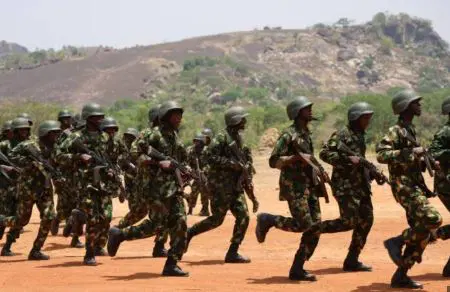The Commander of the 6 Brigade, Nigerian Army and Sector 3 of Operation Whirl Stroke (OPWS), Brigadier General Kingsley Chidiebere Uwa, has issued a stern warning against any further escalation of violence in the Karim-Lamido Local Government Area of Taraba State.
Speaking during a two-day peace meeting with key stakeholders from the affected communities, General Uwa emphasized the military’s commitment to peace, security, and collaboration.
The meeting, held at the brigade headquarters in Jalingo from June 3 to 4, 2025, brought together representatives from the warring Fumang and Illela communities following a violent dispute over land and boundary issues.
Read also:
- FG, Benue Government launch joint security plan to end Herders’ attacks
- Gov. Otu presents operational vehicles to directors of homeland security, college provost
- Governor Otu boosts Cross River security with new fleet of operational vehicles
General Uwa cautioned individuals and groups against taking the law into their hands and urged all parties to prioritize peaceful coexistence. “Peace is the collective responsibility of all,” he stated. “We will leave no stone unturned in securing our communities and ensuring that dialogue, rather than violence, becomes the tool for conflict resolution.”
The land dispute had recently spiraled into violence, resulting in the destruction of farmlands and injuries to several individuals.
In response, the peace meeting culminated in the signing of a peace accord by both communities. The agreement emphasizes respect for territorial boundaries, strict adherence to the rule of law, the promotion of harmony, and the establishment of regular dialogue platforms to resolve future conflicts.
Commending the Army’s efforts, the Emir of Old Muri, Alhaji Abdullahi B., hailed the meeting as “a historic intervention and the first of its kind in the history of Karim-Lamido.” He pledged the full support of traditional and community leaders in upholding the terms of the agreement, warning that any breaches would be met with legal consequences.
The intervention by Brigadier General Uwa marks a significant step toward restoring calm in the region and sets a precedent for peaceful conflict resolution through military-civil collaboration.






